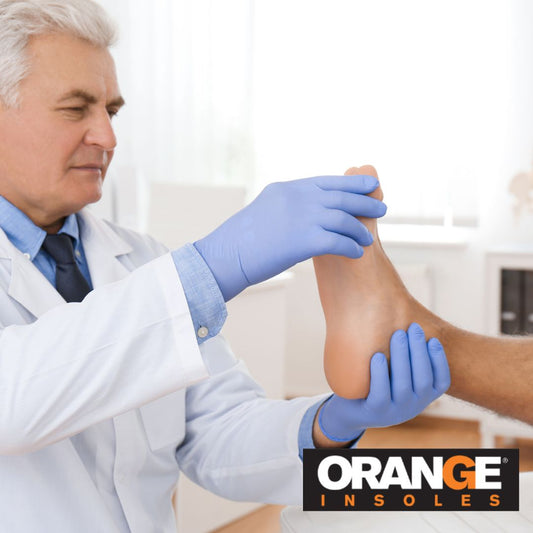“It is only with the heart that one can see rightly; what is essential is invisible to the naked eye.”
- Antoine De Saint-Exupery
We put a lot of pressure on the heart to guide us and heal after it’s been broken and stay strong when we need it…so we should do our best to take care of it.
Your heart rate, or pulse, is the number of times your heart beats per minute and it’s one of the best indicators of heart health that you can watch yourself. The heart rate, how many your heart pumps a minute, will vary based on how hard your body had to work to pump blood to your heart. While everyone’s normal heart rate will be different, it’s important to know your resting heart rate because abrupt changes in your heart rate not related to exercise could be a sign of trouble.
Your Heart Rate
Normal heart rate: 60-100 beats per minute
Athletes or Active individuals: As low as 40. These people often have lower resting heart rates because their heart muscle is in better condition and doesn’t need to work as hard to maintain a steady beat.
An abnormal heart rhythm is when your heart beats too fast or too slow. This change isn’t always bad. Innocent things that can impact your heart rate include:
- Caffeine
- Some medications
- Low potassium or electrolytes
And of course your heart rate will go up when exercising.
Exercise and Your Heart Rate
When you’re exercising, your target heart rate will be based on your age. When you’re active, your rate during moderate intensity activities is about 50-70% of maximum heart rate, while during vigorous physical activity it’s about 70-85%.
Use this chart from the American Heart Association to determine your ideal heart rate during intense activity.
|
Age
|
Target HR Zone 50-85%
|
Average Maximum Heart Rate, 100%
|
|
20 years
|
100-170 beats per minute (bpm)
|
200 bpm
|
|
30 years
|
95-162 bpm
|
190 bpm
|
|
35 years
|
93-157 bpm
|
185 bpm
|
|
40 years
|
90-153 bpm
|
180 bpm
|
|
45 years
|
88-149 bpm
|
175 bpm
|
|
50 years
|
85-145 bpm
|
170 bpm
|
|
55 years
|
83-140 bpm
|
165 bpm
|
|
60 years
|
80-136 bpm
|
160 bpm
|
|
65 years
|
78-132 bpm
|
155 bpm
|
|
70 years
|
75-128 bpm
|
150 bpm
|
When you’re working out, track your heart rate (either manually or with a fitness tracker) and try to stay within your target range. If you’re too high, it means your heart is straining. If it’s too low, you might not be pushing yourself hard enough, especially if you’re trying to lose weight.
How long it takes for your heart rate to return to normal after your workout can also be an indicator of your heart health. The more fit you are, the more quickly it will return to normal. Your heart rate drops most sharply in the first minute after you stop exercising; it should then fall about 20 beats a minute—a drop of less than 12 beats a minute is considered abnormal. This “recovery heart rate” is measured as part of an exercise stress test.
Keep an Eye on your Heart Rate
Knowing your resting heart rate helps you keep an eye on your health. While you don’t need to be obsessed with your heart rate, you should watch it during exercise and watch for the following indicators of an abnormal heart rate.
- Shortness of breath
- Dizziness
- Frequent sweating
- Heart fluttering or palpitations
Your heart rate will get checked during a medical exam or whenever you see your doctor but you might want to track it a little more closely if any of these risks apply to you:
- You smoke
- You have a primarily sedentary lifestyle
- You eat a diet high in fats, cholesterol, and other unhealthy foods
- You have more than two drinks a day
- You have high blood pressure
Heart Healthy Tips
It’s no secret you need to take care of your heart. Here are a few quick tips to help keep your ticker in tip top shape.
- NO SMOKING
- Get rid of idle hands: Activities like knitting, sewing, coloring, and more, can help relieve stress and keep your heart calm.
- Eat heart healthy foods like:
- black beans
- fish
- wine (yup! moderately, of course)
- Cut back on salt: and other high sodium foods.
- Get up and move: sitting shortens your lifespan so make sure you stay active as often as possible.
- Meditate: Integrating the practice into a daily routine has been linked to lower heart rate and blood pressure, which may lower your risk of heart disease.
- Do Yoga: According to research published in the Journal of Evidence-Based Complementary & Alternative MedicineTrusted Source, yoga has the power to reduce your risk of cardiovascular disease.
Remember, we aren’t doctors so if you have questions about your heart, make sure to see yours. From our hearts to yours, have a great day!

























































